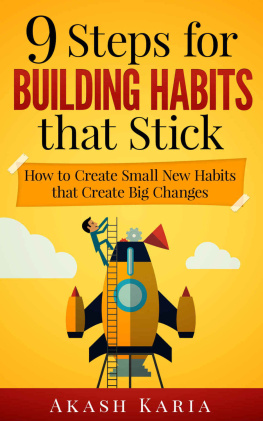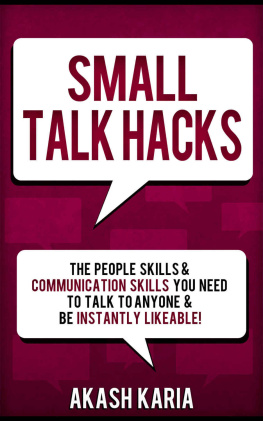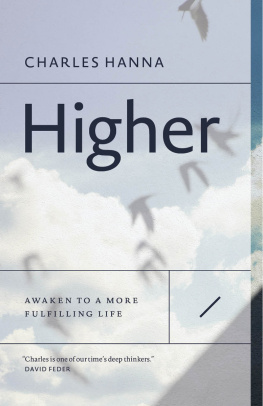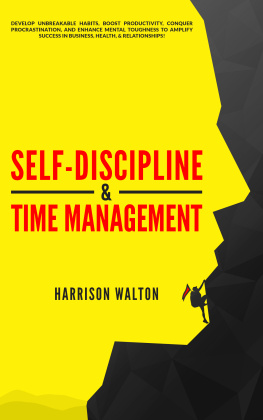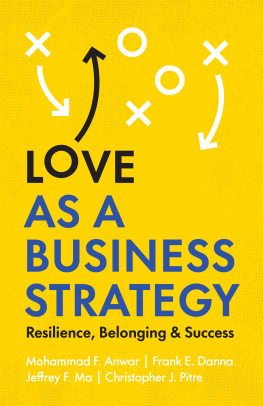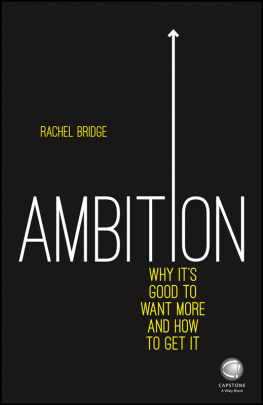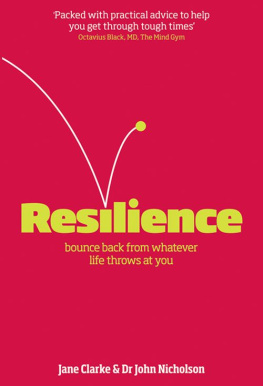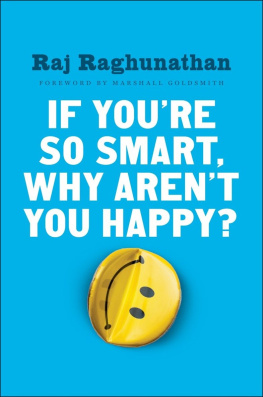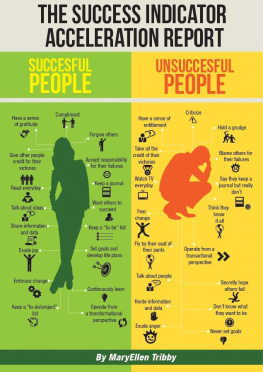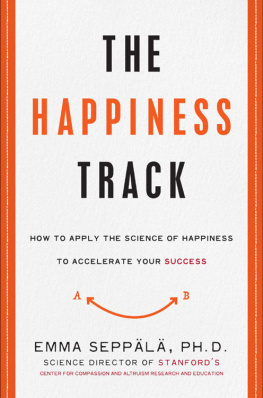EMOTIONAL HABITS
The 7 Things Resilient
People Do Differently
And How They Can Help You Succeed in Life and Business
2016 All Rights Reserved
Akash Karia
Resilience & Peak Performance Coach
#1 Internationally Bestselling Author of
How Successful People Think Differently
www.AkashKaria.com
How easily do you bounce back from a disappointment? What is your reaction to change? As an investor, or a board member or an employee, are you seeking stability or impact? Resilience is a skill, one thats probably more valuable than most.
~ Seth Godin
define: resilient

able to withstand or recover quickly from difficult conditions. Example: babies are generally far more resilient than new parents realize. Synonyms: strong, tough, hardy.
YOUR FREE GIFTS

As a thank-you for purchasing this book, Id like to offer you three bonus resources:
1. Passcode to the Emotional Resilience Quiz
Get personalized, individual feedback from our experts on your emotional strengths and areas for improvement. Your results will also pinpoint specific tools in this book to help you achieve greater success in life and business. (Note: Your access code will be given to you later inside the program).
2. 8 Steps to Defeating Any Limiting Label (PDF Guide)
Uncover the limiting labels that are putting the brakes on your success.
3. How to Triple Your Chances of Success (MP3)
Discover scientifically backed advice on how to set goals that triple your chances of success.
To get instant access, click here:
www.AkashKaria.com/Bonus
TABLE OF CONTENTS

Chapter One
THE FIRST STEP...
Chapter Two
A TOOL THAT WORKS WONDERS
Chapter Three
HOW TO ADJUST YOUR FOCUS
Chapter Four
THIS CAN MAKE YOU HAPPY, OR IT CAN MAKE YOU SICK
Chapter Five
THE HIDDEN POWER OF QUESTIONS
Chapter Six
POWERFUL TRICKS FOR TAKING CONTROL OF YOUR MENTAL MOVIES
Chapter Seven
THE ABC LOOP
Chapter Eight
WRAP UP
WEVE ALL BEEN THERE...

Weve all been there: something that we perceive as negative happens at home, at work, or at school. Perhaps your boss awards a new position to an undeserving coworker, or a friend makes an unkind comment that you just cant shake.
Whatever the case may be, your emotional responseanger, hurt, fearholds more control over you than you would like.
Before you know it, youre canceling social engagements, pulling on sweatpants, stocking up on pints of Ben & Jerrys ice cream, and even subjecting your closest friends and family to shoulder shrugs and one-word answers.
Now obviously, were all different.
For some people, this scenario is all too familiar, repeating itself at every detected slight. For others, such a reaction is reserved for only the direst circumstances. Regardless of which description hits closer to home, this book is for you.
Dont think of this as a book for the emotionally broken because I believe that no one is emotionally broken. If you find yourself consistently in disempowering emotional states like the one described above, it may be because youre simply not using the tools at your disposal to put yourself in a more empowering state.
Alternatively, even if you consider yourself to be emotionally satisfied, this book will show you how to intensify lifes joys and experience even greater excitement, passion, and happiness. At the same time, it will prepare you to handle lifes inevitable valleysthose downturns we all have at one point or anotherand use them to your advantage. It will show you what emotionally resilient people do differently, how they do it and how you can use the same tools to succeed in life and in business.
So, why is it so important for you to gain control over your emotional states?
Many experts believe that emotional resilience is the #1 key to successnot education and not conventional intelligence.
Dont we all know people who are smart and educated, but lack the fulfillment they desire?
And yet less educated, less intelligent people who have mastered the ability to use their emotions rather than being used by them often achieve far more.
In fact, resilience even results in better health! Jan Bruce writes in her Forbes article:
A recent study on the correlation between resilience and key health and productivity measures found that resilience is the foundation of success and possibility, with high levels of resilience significantly correlating with better health status; higher job satisfaction, morale, and productivity; and lower stress.
With all those benefits, why wouldnt you want to develop your emotional resilience?
DISCOVER THE TOOLS TO DO MORE, GAIN MORE, ACHIEVE MORE, AND BE MORE!
The 7 habits of emotionally resilient people explored in this book will give you the tools to master your emotions by ensuring your emotions are the passengers in the car rather than the driver.
This book is the result of pain-staking research and studying. It is based on thorough academic research as well as my own experiences and that of my clients (who range from Fortune 1000 executives to government members to students).
My hope is that the chapters of this book will guide you to break any unproductive emotional habits and train you to master your emotions so that you can enjoy a higher quality of life and have more drive, more RESILIENCE, to pursue your goals and dreams.
But first: What does it mean to truly master your emotions?
To start, lets work on defining this concept by discussing what it is not. Emotional mastery does not refer to the stifling or denial of emotions. Additionally, the goal of building emotional strength is not to somehow make every situation in life happy and rosy. In fact, the human experience is inherently loaded with unavoidable ups and downs.
So let me assure you before we go any further that it is entirely natural to feel negative emotions when lifes challenges and disappointments get you down. The ultimate objective of learning to master your emotions is to prevent those negative emotions from acting as a driving force in your life.
I know its hard to believe sometimes, but you are in control of your emotions, and ultimately, this book is about giving you the tools to choose your emotional response.
How is that possible?
MIND THE GAP
Its pretty simple. Theres a gap between a stimulus (what happens to us) and our emotional response and subsequent behavior.

Image : Mind The Gap
In this book, I explain that gap in more detail and show you how you can use it to decide for yourself what the best emotional response is in any given situation.
Next page

